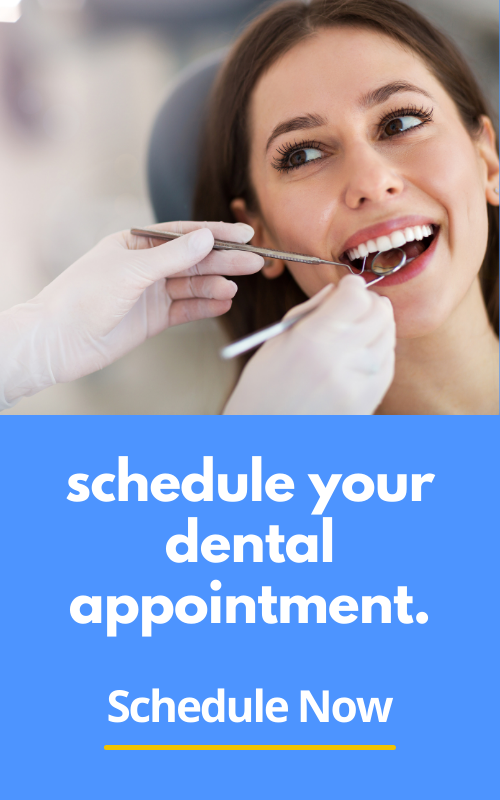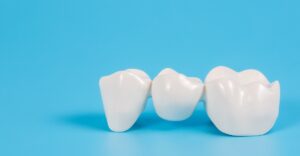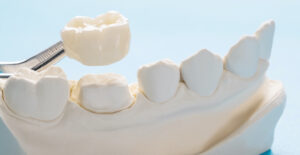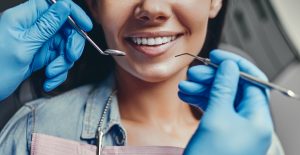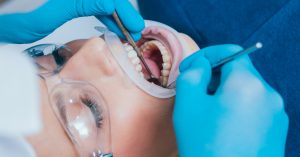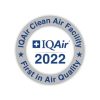Oral cancer(mouth cancer), the sixth most commonly occuring cancer, accounts for about 3.6 percent of all cancers diagnosed, with roughly 29,000 new cases of oral cancer reported annually in the United States. The vast majority of oral cancers occur in people older than 50 years, with men being twice as likely as women to develop the disease. Oral cancer often spreads without any symptoms, which is why it is important to be routinely evaluated by your dentist.
Causes of Oral Cancer
The exact cause of cancer has not been determined, but several factors have been proposed as possible culprits. The carcinogens in tobacco products, alcohol and certain foods, as well as excessive exposure to the sun, especially at a young age, and a family history of cancer have been found to increase the risk of developing oral cancer.
Signs and symptoms of Oral Cancer
The following are the common signs and symptoms:
- Swellings/thickenings, lumps or bumps, rough spots or eroded areas on the lips, gums, tongue, palate or other areas inside the mouth.
- The development of velvety white, red, or speckled (white and red) patches in the mouth.
- Unexplained bleeding in the mouth.
- Persistent ulcers in the mouth that bleed easily and do not heal within 2 weeks.
- Unexplained numbness, loss of feeling, altered sensation or pain/tenderness in any area of the face, mouth, or neck.
- A soreness or feeling that something is caught in the back of the throat, making it difficult to swallow.
- Difficulty chewing or swallowing, speaking, or moving the jaw or tongue.
- Hoarseness, chronic sore throat, or changes in the voice.
- A change in the way your teeth or dentures fit together – a change in your "bite."
- Dramatic weight loss.
- Pain in the ears.
If you notice any of these symptoms, contact your dentist immediately for a professional examination.
Screening for Oral Cancer
Your dentist should screen for oral cancer during your routine comprehensive checkups. He or she checks for long-standing lumps, ulcers or other irregularities in your neck, head, cheeks and oral cavity, and thoroughly examines the soft tissues in your mouth, specifically looking for any sores or discolored tissues.
Mouth Cancer Treatment
If your dentist suspects oral cancer, a biopsy of the lesion is required to confirm the diagnosis. The biopsy may be a relatively simple procedure, called a brush biopsy; or may require anesthesia for a scalpel biopsy. Your dentist may do this or refer you to a specialist for it.
Surgery is required to remove the tumor, which may cause disfigurement. Radiation therapy may be also be used conjunctively.
Mouth Cancer Prevention
Oral cancer accounts for roughly 8,000 deaths annually and has a poor five-year survival rate. Oral cancer is usually detected only in the late stages, leading to a dismal cure rate. Here is list of things that would help in preventing oral cancer.
- Do not smoke or chew or use tobacco in any form.
- Drink alcohol in moderation. When tobacco use and alcohol use are combined, the risk of oral cancer increases several-fold as comapred to non-users.
- Research suggests that eating plenty of fruits and vegetables may safeguard against oral cancer.
- Repeated exposure to sun increases the risk of cancer on the lip, especially the lower lip. When out in the sun, use UV-A/B-blocking sun protective lotions on your skin as well as your lips.
- It is extremely important to see your dentist for an oral cancer screening and regular checkup at least every six months, as succesful treatment depends on early detection. Survival rates greatly increase the earlier oral cancer is discovered and treated. During your next dental visit, ask your dentist to do an oral cancer screening.


